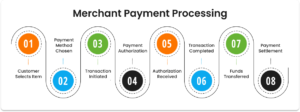In the dynamic intersection of finance and technology, open banking has emerged as a powerful catalyst for change, transcending borders and reshaping the global financial landscape. As countries worldwide embrace open banking’s transformative potential, the ability to process payments in innovative ways is paving the way for a new era of financial accessibility, collaboration, and empowerment.
The Global Evolution of Open Banking
Open banking, a concept that was once a niche innovation, has rapidly evolved into a global movement that has captured the attention of financial institutions, regulators, and consumers worldwide.
At its core, open banking involves securely sharing financial data between traditional financial institutions and third-party service providers (TPPs) through standardized Application Programming Interfaces (APIs). This data sharing empowers consumers with greater control over their financial information while fostering innovation by enabling third parties to create new financial products and services.
A combination of regulatory initiatives and market-driven demand has spurred the adoption of open banking. Countries like the UK, EU member states, and Australia have implemented regulatory frameworks requiring banks to provide third-party access to customer data, encouraging competition and innovation.
In other regions, market forces and technological advancements have driven the adoption of open banking. The financial institutions recognize the value of collaborating with fintech startups and third-party developers to create novel solutions.
Global Impact on Financial Ecosystems
The impact of open banking on financial ecosystems is profound and multifaceted. As financial data becomes more accessible, the traditional banking model is shifting from a closed system to an open and interconnected one. This shift benefits consumers, financial institutions, and fintech innovators alike.
For consumers, open banking represents a leap forward in financial convenience and empowerment. With the ability to view accounts from multiple institutions through a single interface, consumers can gain a comprehensive understanding of their financial health.
Financial institutions have a dual opportunity: to enhance customer experiences and foster innovation. By collaborating with fintech startups and developers, these institutions can create tailored financial solutions that cater to diverse needs. The infusion of innovation not only retains customer loyalty but also drives competition, ultimately benefiting consumers.
For fintech startups, the global embrace of open banking presents an avenue for growth and creativity. With access to financial data, these innovators can design applications that offer personalized financial advice, simplified budgeting tools, and optimized investment strategies. This symbiotic relationship between traditional institutions and fintech disruptors is accelerating the pace of financial innovation on a global scale.
Navigating Challenges and Embracing Opportunities
As open banking expands, it faces a series of challenges that must be addressed to ensure its sustained success. One of the foremost challenges is data security and privacy. As financial data flows across various platforms, ensuring the protection of sensitive information is paramount. Regulatory compliance and robust security measures are essential to building trust within the open banking ecosystem.
Interoperability and standardization also pose challenges. For open banking to reach its full potential, a uniform set of standards and protocols must be established to facilitate seamless data sharing between financial institutions and TPPs. This requires collaboration and coordination on a global scale.
Despite these challenges, open banking promises a more inclusive financial future. The ability to process payments through fintech platforms like Noda underscores the potential of this innovation. Noda’s platform leverages APIs to enable secure and efficient payment processing, enhancing the speed and convenience of transactions while upholding stringent security measures.
A Glimpse into the Future of Open Banking
As open banking continues to shape the global financial landscape, its future appears bright and transformative. The proliferation of open banking initiatives is poised to accelerate the development of new financial products, services, and experiences that cater to individual needs.
The evolution of open banking is not limited to a single region or market. From established financial hubs to emerging economies, open banking principles can empower individuals with greater financial control and accessibility.
In conclusion, the global journey of open banking exemplifies the power of collaboration between finance and technology. As countries embrace open banking’s potential, a new era of financial empowerment is emerging. This transformation transcends borders, fostering a financial ecosystem that is more interconnected, inclusive, and responsive to the needs of consumers. The journey of open banking is one of progress, and its destination promises a future where financial innovation knows no boundaries.





Be First to Comment